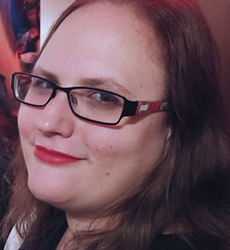Professor Elaine Cloutman-Green
Which NHS and Academic Institutions do you work for?
I hold a full time contract at Great Ormond Street Hospital and an honouree contract with University College London.
What do you like about being a Clinical Academic?
I’m not very patient, I’ve never been the kind of scientist who wants to wait 5 to 10 years to get the work they are doing into clinical practice. Working as a clinical academic allows me to have a real two way dialogue between my clinical work and academia. I set questions based on issues I have within my clinical world, where there is not enough evidence for me to make changes and challenge myself and my academic colleagues to find solutions. It also enables me to take solutions, interventions and evidence that is available in my academic world and use that to rapidly change things within my clinical practice for the direct benefit of patients and families.
Can you briefly describe how you became and developed as a Clinical Academic?
I didn’t really know that being a Clinical Academic was an option for Healthcare Scientists, I thought it was only for medics. When I started out I received funding from the Chief Scientific Officers’ NIHR Doctoral Fellowship scheme. I knew that I wanted to do a PhD and this gave me the option to undertake a fully funded PhD in 60% of my time. This was the first step for me and I immediately saw the benefits of working in this kind of model, and I’d like to think that my Trust saw the benefits also. I finished my PhD in 2015 and then applied for and started a Clinical Lectureship with the NIHR in 2016, which finished in 2019. Since then I’ve been lucky enough to secure over £20 million in research funding.
Give one example of where your work has changed practice?
My work has enabled a new molecular pathology space to be developed in my Trust due to an infrastructure grant called Precision AMR, which aims to improve the speed of translation of research tests into clinical practice. I hope that this will have an impact over the next 5 – 10 years to really change diagnostic pathways. From a personal perspective the work that I have done has included developing typing methods for improved detection of cross transmission and to support interventions, such as environmental cleaning and screening.
What advice would you give to a Healthcare Scientist who is an aspiring Clinical Academic?
I would say find a mentor who can help you navigate during your career. The clinical world and academic world are both amazing places to work within but they each have their own rules and specific cultures. Sometimes it can be a bit daunting starting out in one and trying to link into the other. If you can find someone who already does that they can help signpost you and also explain why some of the things work the way they do, saving you both effort and frustration.
